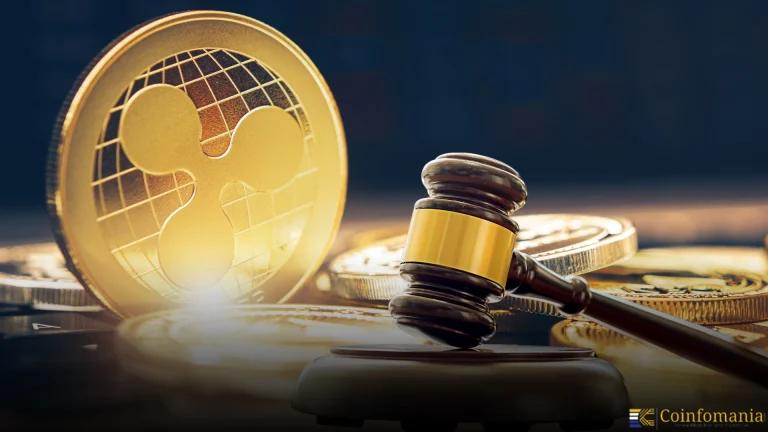Cryptocurrency Regulations in Brazil
Brazil has established itself as a crypto-friendly Latin American nation through its balanced policies, which support innovation together with regulatory control. Brazil allows its citizens to use cryptocurrency and trade it as well as invest in it even though it does not have the status of official legal tender. Brazilian crypto regulations must be understood […]

Brazil has established itself as a crypto-friendly Latin American nation through its balanced policies, which support innovation together with regulatory control. Brazil allows its citizens to use cryptocurrency and trade it as well as invest in it even though it does not have the status of official legal tender. Brazilian crypto regulations must be understood by investors and businesses along with users because these rules enable legal operation and tax compliance in the expanding market.
The Central Bank of Brazil (Banco Central do Brasil, BCB), the Brazilian Securities and Exchange Commission (Comissão de Valores Mobiliários, CVM), and the Federal Revenue Service (Receita Federal do Brasil, RFB) function as the main regulatory authorities that oversee cryptocurrency operations.
Historical Context
Brazil started its relationship with cryptocurrency by taking a reserved approach. The BCB released an advisory statement in 2017 to warn about virtual currency risks because they do not carry official support. The regulatory bodies chose not to implement bans, which led to the natural expansion of the industry. The crypto exchange reporting requirements for tax and anti-money laundering purposes were established through RFB Normative Ruling No. 1,888 in 2019.
Law No. 14,478 established the “Legal Framework for Virtual Assets” in December 2022 under BCB supervision and went into effect in June 2023. Brazil has transformed its stance from initial doubt into an organized system for cryptocurrency management that aims to unite market innovation with financial security measures and crime prevention efforts to become a leading crypto adoption hub in the region.
Regulatory Framework
Brazil’s crypto oversight relies on the BCB as its central authority, which received its authorization through Law No. 14,478 to oversee Virtual Asset Service Providers including exchanges and custodians. The CVM regulates securities tokens in public offerings yet the RFB manages their taxation aspects. VASPs need to acquire BCB authorization through Siscoaf registration and corporate governance compliance to operate in Brazil. AML and KYC requirements follow the guidelines of Law No. 9,613/98 by requiring identity checks and transaction monitoring to stop money laundering and terrorism financing activities.
People who own crypto assets must file annual reports to authorities and face tax rates of 15-22.5% on profits above BRL 35,000 per month. Businesses must fulfil the same reporting duties to the RFB by sending transaction data from their exchanges. ICOs and STOs need to file prospectuses with CVM unless they operate within the CVM regulatory sandbox or the securities’ definition does not apply to their offerings.
Utility tokens exist outside regulatory oversight unless they become involved in financial criminal activities. The regulatory framework enables both regulatory compliance and structured growth conditions for the crypto industry.
Brazil Crypto Policies
Brazil supports cryptocurrency use for payments and investments yet it does not establish cryptocurrency as legal tender because the Brazilian Real functions as the official currency. Law No. 14,478 established crypto as an official payment option during 2023, which created better conditions for wider adoption.
The Brazilian Central Bank has allowed crypto mining operations under its productive process classification since 2019 while offering tax exemptions on SHA256 mining equipment until December 31, 2025, to encourage mining activities. The Brazilian Central Bank is working on developing its Central Bank Digital Currency “Digital Real” through 2025 pilot programs to expand financial access for all.
Failure to comply with regulations leads to harsh legal consequences under Law No. 14,478, which mandates four to eight years of imprisonment for crypto-related fraud and money laundering through virtual assets receive enhanced penalties that reach one-third or two-thirds of the original sentence. The regulatory framework remains strong due to the fact that unauthorized VASPs face both closure and financial penalties.
Country’s Approach to Crypto Innovation
Brazil fosters crypto innovation through regulatory sandboxes. The CVM’s sandbox program has authorized initiatives for tokenized securities trading to develop regulations that suit emerging markets. The BCB’s Financial and Technological Innovations Laboratory (LIFT) initiated its operations in 2018 to develop blockchain solutions that enhance the National Financial System.
The adoption of crypto continues to expand as Mercado Bitcoin succeeds in business and retailers adopt crypto payments. The 2024 LAPIN study on digital asset regulation receives support from Ripple as an initiative to advance blockchain development. The combination of regulatory oversight with experimental freedom makes Brazil an innovative center for crypto and blockchain development throughout Latin America.
Notable Challenges and Issues
The national consistency of Brazil’s crypto regulations suffers from enforcement difficulties because of cryptocurrency decentralization which makes AML efforts more challenging due to anonymous transactions. The BCB’s March 2025 X posts revealed a proposed stablecoin withdrawal ban to self-custodial wallets which demonstrates the ongoing struggle between regulatory control and user freedom.
The public displays conflicting views about crypto adoption because mainstream media tends to focus on fraud risks which makes some people doubt its legitimacy. Companies together with investors face challenging tax reporting duties because the RFB requires detailed financial documentation. The regulatory struggle to monitor this quickly changing marketplace faces challenges that compromise both public confidence and market transparency.
Key Regulatory Trends
A new bill passed in March 2025 enables employees to get up to half of their wages paid in digital currencies. The BCB’s proposed ban on stablecoin withdrawals demonstrates increasing regulatory measures which might aim to protect the Digital Real. Future regulatory measures might become more stringent to prevent criminal activities, but Brazil continues to support innovative practices through its sandbox programs.
Brazil’s progressive crypto policies have the potential to shape crypto regulations throughout Latin America and BRICS nations if their proposed adoption of crypto for BRICS transactions becomes reality. The combined strategy positions Brazil to strengthen its position in global crypto markets while managing economic and regulatory obstacles.
Conclusion
Brazil has established regulatory guidelines that combine liberal policies with monitoring mechanisms to develop a thriving market structure which remains under control. Those interested in investing, doing business or being enthusiasts in Brazil must understand its regulatory framework to comply with regulations while capitalizing on regional opportunities.
The fast-paced evolution of rules demands that everyone stays updated through recent wage bill changes and stablecoin discussions. Brazil demonstrates a successful method to manage innovation with stability, which positions it as a vital participant in worldwide cryptosystems.
Our website provides ongoing updates about Brazil’s evolving crypto regulations so you can confidently explore this active market.
FAQs
1. Is cryptocurrency legal in Brazil?
The Brazilian government permits cryptocurrency usage in trading, investment activities and payments but does not consider it as a legal tender.
2. Who regulates cryptocurrencies in Brazil?
The Central Bank (BCB) and Securities Commission (CVM) and Federal Revenue Service (RFB) together oversee different areas of Brazil’s cryptocurrency market.
3. What does Brazil require in terms of taxes from cryptocurrency users?
Brazilian citizens along with businesses need to document their cryptocurrency activity while facing possible capital gains tax obligations on their profits.
4. Is there a legal framework for cryptocurrency payments in Brazil?
The legislation under Law No. 14,478 permits crypto payments in Brazil, although merchants do not need to accept them as a payment method.
5. What punishments exist for crypto-related offenses within Brazilian law?
In Brazil the criminal offenses of fraud or money laundering with crypto assets result in a prison sentence between four and eight years.
Follow us on Google News
Get the latest crypto insights and updates.
Related Posts

Ripple Highlights Custody as Key to $18.9T Tokenized Assets by 2033
Shweta Chakrawarty
Author

Hong Kong SFC Issues New Custody Rules for Crypto Platforms
Shweta Chakrawarty
Author

South Korea and Vietnam eye $150B trade despite Trump tariff
Shweta Chakrawarty
Author